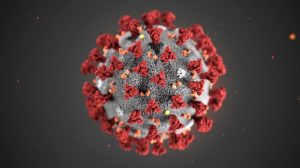According to an order published today in Diario da Republica, non-Portuguese citizens, individuals without a residence in Portugal, or those who arrive without a negative PCR test certificate will have to take a test at their arrival airport and pay for it themselves. In addition, the airline with whom they travelled with will be fined €1,000 per passenger. This order applies to Portuguese airports managed by ANA, SA, with the exception of those in Madeira and the Azores.
These new rulings apply to people arriving from areas that are considered to be an epidemiological risk by the Directorate-General for Health; these include Portuguese-speaking countries (PALOP), and the United States of America.
Non-nationals or foreigners without a residence in Portugal will not be allowed to enter Portugal if they do not have the correct documentation or refuse to pay for their test at the airport. In such situations, their carrier will be responsible for returning passengers to their country of origin.
In addition, after check-in at departure airports, airlines must notify the destination airport of the number of passengers who have boarded without a PCR test. Airlines who accept passengers on their aircraft without a negative PCR test certificate will be subject to a thousand euro fine per passenger. The only exceptions are those travelling because of an emergency, but this has to be substantiated. All fines will be administered by ANAC (Portugal Civil Aviation Authority).
Portuguese citizens and foreigners residing in Portugal will be subjected to temperature measurement checks on arrival and, if appropriate, will undergo a PCR test at the airport. These travellers will then be allowed to proceed to their final destination after providing contact details, but are obliged to remain confined in their residence until they receive the results of the RT-PCR molecular test.
With fear of the virus set to continue and worry of further transmissions being brought in from abroad, the new guidelines aim to create safer and more responsible travel, while safeguarding Portugal’s citizens.
Samantha Gannon
info at madeira-weekly.com










